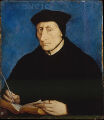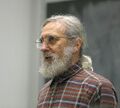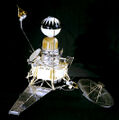Template:Selected anniversaries/January 26
1467: Scholar and philosopher Guillaume Budé born. His De Asse et Partibus Eius (1514), a treatise on ancient coins and measures, will secure his reputation.
1857: Printer, bookseller, and inventor Édouard-Léon Scott de Martinville submits sealed patent application for the phonoautograph, which records an audio signal as a photographic image.
1885: Physician, scientist, and inventor Edward Davy dies. He played a prominent role in the development of telegraphy, and invented an electric relay.
1895: Mathematician and academic Arthur Cayley dies. He was the first to define the concept of a group in the modern way, as a set with a binary operation satisfying certain laws.
1911: Physicist and academic Polykarp Kusch born. Kusch will make an accurate determination that the magnetic moment of the electron is greater than its theoretical value, thus leading to reconsideration of—and innovations in—quantum electrodynamics; he will be awarded the 1955 Nobel Prize in Physics for this accomplishment.
1926: Engineer and inventor John Logie Baird makes the first public demonstration of television.
1933: Mathematician Donald Erik Sarason born. He will make fundamental advances in the areas of Hardy space theory and Vanishing mean oscillation (VMO).
1943: American eugenicist and sociologist Harry H. Laughlin dies. He will be the Superintendent of the Eugenics Record Office from its inception in 1910 to its closing in 1939, and among the most active individuals in influencing American eugenics policy, especially compulsory sterilization legislation.
1962: Ranger 3 is launched to study the Moon. The space probe later misses the moon by 22,000 miles (35,400 km).
1963: The Flying Diner announces twice-daily flights between New Minneapolis, Canada and Saint Paul, Minnesota.










